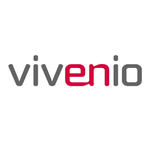Description

Kinetic

Oxford Abstracts
Comprehensive Overview: Kinetic vs Oxford Abstracts
Kinetic and Oxford Abstracts are platforms serving different yet overlapping needs, primarily in event management and academic conference organization, respectively. Here's a detailed look at both:
a) Primary Functions and Target Markets
Kinetic:
- Primary Functions: Kinetic is typically focused on creating dynamic and engaging event experiences. It provides tools for event management, including live streaming, attendee engagement, and comprehensive event analytics. Features often include ticketing, registration, networking capabilities, and post-event feedback collection.
- Target Markets: Kinetic targets a variety of markets, including corporate events, trade shows, virtual conferences, webinars, and hybrid events. It is well-suited for businesses seeking to leverage digital technology for enhanced engagement and broader audience reach.
Oxford Abstracts:
- Primary Functions: Oxford Abstracts specializes in abstract and submission management for academic conferences. It offers functionalities for managing submissions, peer review processes, and conference scheduling. Its tools also assist in organizing workshops and symposia by providing logistical support from proposal to publication.
- Target Markets: Its primary users are academic institutions, professional associations, and researchers. It’s particularly aimed at academic conferences, scientific meetings, and scholarly symposiums.
b) Market Share and User Base
Kinetic:
- As an event tech platform, Kinetic's market share can vary greatly depending on the region and type of events. It competes in a crowded market with established players like Zoom Events and Hopin. The user base generally comprises event organizers and corporate clients looking to enhance both virtual and physical gatherings.
Oxford Abstracts:
- Oxford Abstracts commands a niche market within academic and scholarly circles. Its user base primarily includes academic institutions and researchers. Its market share in the academic conference sector is more pronounced than in the general event management sector due to its specialized functionality.
c) Key Differentiating Factors
-
Specialization and Focus:
- Kinetic is heavily geared towards creating engaging event experiences, with a strong focus on live and hybrid event capabilities.
- Oxford Abstracts is specifically tailored to handle the complexities of academic conference management, particularly the process of abstract submission and review.
-
Feature Sets:
- Kinetic offers broader event management features including marketing integration, elaborate networking opportunities, and versatile content delivery options.
- Oxford Abstracts provides robust tools for academic processes, such as detailed peer review systems and features that cater to the needs of scholarly events.
-
Target Audience:
- Kinetic appeals to a broader audience outside of academia, tapping into industries like corporate sectors, education, and trade shows.
- Oxford Abstracts appeals primarily to academic circles, focusing on universities, colleges, and research institutions.
-
User Experience and Interface:
- Based on user reviews, Kinetic is designed for intuitive use by non-academic event planners who need flexibility in event customization.
- Oxford Abstracts is optimized for academic coordinators, offering interfaces that streamline scholarly communication and publication needs.
These products differ significantly in their core offerings and the value they provide to their respective user bases. While Kinetic focuses on engaging general and corporate audiences, Oxford Abstracts remains deeply rooted in the academic domain, providing specialized solutions for scholarly events.
Contact Info

Year founded :
2005
Not Available
Not Available
United Kingdom
Not Available

Year founded :
Not Available
Not Available
Not Available
Not Available
Not Available
Feature Similarity Breakdown: Kinetic, Oxford Abstracts
Kinetic and Oxford Abstracts are platforms often used for managing events and academic conferences. Here's a breakdown of their feature similarities and differences:
a) Core Features They Have in Common
-
Abstract Management: Both Kinetic and Oxford Abstracts offer comprehensive tools for managing abstracts. This includes submission, review, and approval processes, which are critical for academic conferences.
-
Event Scheduling: Both platforms provide functionalities to schedule sessions, manage speakers, and organize event agendas, allowing users to create detailed programs for their conferences.
-
User Management: They both include features for managing different types of users such as attendees, speakers, reviewers, and administrators, with varying levels of access and permissions.
-
Reporting and Analytics: Both offer reporting tools to track attendance, session popularity, abstract submissions, and other critical data points that help in evaluating the event’s success.
-
Integrations: Both products tend to support integrations with other platforms and tools, such as CRM systems and payment gateways, allowing for a streamlined workflow.
b) User Interface Comparison
-
Kinetic: Known for its modern and intuitive user interface, Kinetic usually offers a clean layout with easy navigation. It often emphasizes customizable dashboards that adapt to different user roles, making it simple for users to access the features they need the most.
-
Oxford Abstracts: Generally provides a straightforward and functional interface. It focuses on efficiency and effectiveness, ensuring the tasks such as abstract submission and review are clear and streamlined. While not as visually oriented as some of its competitors, its design prioritizes clarity in process management.
c) Unique Features
-
Kinetic:
- Custom Branding: Offers extensive customization options to align the platform's appearance with the organization's brand identity, which can be a significant advantage for large-scale or corporate events.
- Virtual and Hybrid Event Support: Provides robust tools for managing virtual and hybrid events, offering features for live streaming and virtual exhibitor booths.
-
Oxford Abstracts:
- Comprehensive Reviewing Options: Known for its nuanced reviewing process options, allowing for blind, double-blind, and open reviewing customizable to different conference needs.
- Specialized Academic Features: Tailored features specifically for academic events, such as specialized abstract formatting and easy adaptations for different academic disciplines.
In summary, while both platforms offer strong capabilities for managing events and conferences, Kinetic tends to be more flexible with customization and virtual event features. In contrast, Oxford Abstracts excels in academic-specific offerings and simplifying the abstract review process. The choice between the two might depend on specific needs such as the level of customization desired, the nature of the event (academic vs. corporate), and whether a virtual component is essential.
Features

Not Available

Not Available
Best Fit Use Cases: Kinetic, Oxford Abstracts
Kinetic and Oxford Abstracts serve different purposes and cater to distinct needs, making them suitable for specific types of businesses, projects, and scenarios.
Kinetic
a) Best Fit for Businesses or Projects:
- Retail and Logistics: Kinetic is particularly effective in industries like retail and logistics where efficiency in stock management, inventory tracking, and real-time data analysis are crucial.
- Manufacturing: Companies involved in manufacturing can leverage Kinetic for optimizing production lines, reducing downtime, and implementing predictive maintenance.
- Field Service Organizations: Businesses that require real-time tracking of field agents and equipment can benefit from Kinetic's data-driven insights and automation capabilities.
- Construction: Companies in the construction sector needing precise project tracking, resource allocation, and risk management are ideal candidates for Kinetic.
d) Industry Verticals and Company Sizes:
- Mid to Large Enterprises: Kinetic caters to mid-sized to large enterprises with complex supply chains or production processes. The scalability and customization options make it suitable for companies across industries like automotive, aerospace, and consumer goods.
- Technology-Driven Firms: Businesses inclined towards incorporating IoT and AI in their operations find Kinetic valuable for its advanced analytics and data insights capabilities.
Oxford Abstracts
b) Preferred Scenarios:
- Academic Conferences and Research Events: Oxford Abstracts is most suitable for managing abstract submissions, reviews, and presentations for academic conferences and symposia.
- Professional Associations: Organizations hosting professional gatherings or industry-specific meetings can use Oxford Abstracts for streamlined event management.
- Non-Profit and Educational Institutions: These entities, which often organize scientific or scholarly events, can use Oxford Abstracts to enhance participant engagement and manage event logistics efficiently.
d) Industry Verticals and Company Sizes:
- Small to Medium-Sized Academic Institutions: Oxford Abstracts is ideal for educational institutions and small to medium-sized organizations that require a user-friendly and cost-effective solution for managing conference submissions and schedules.
- Event Management Companies: Firms specializing in managing academic or scientific conferences will find Oxford Abstracts beneficial due to its specialized features for handling large volumes of abstracts and reviewer assignments.
In summary, Kinetic is best suited for industries with complex operational needs that benefit from advanced analytics and IoT capabilities, whereas Oxford Abstracts is tailored for the academic and scientific community, focusing on event and abstract management. Their versatility across different verticals is defined by the nature of the operations or events they support, with Kinetic leaning towards operational optimization and Oxford Abstracts towards effective event management.
Pricing

Pricing Not Available

Pricing Not Available
Metrics History
Metrics History
Comparing undefined across companies
Conclusion & Final Verdict: Kinetic vs Oxford Abstracts
To provide a comprehensive conclusion and final verdict for Kinetic and Oxford Abstracts, I'll address each aspect of the inquiry:
a) Best Overall Value
Kinetic and Oxford Abstracts serve slightly different needs within the event management and abstract handling space, with each offering unique features. The best overall value depends on the specific needs of the user or organization.
- Oxford Abstracts tends to provide robust features specifically tailored for conference management and abstract submission. It excels in environments where managing, reviewing, and organizing abstracts is the primary focus.
- Kinetic, on the other hand, may offer a broader range of functionalities geared toward general event management, possibly integrating abstract handling with other logistical aspects of event planning.
From a value perspective:
- Best for Specialized Abstract Handling: Oxford Abstracts, if your primary requirement is focused, efficient, and simplified abstract management.
- Best for Comprehensive Event Management: Kinetic, if you need a more holistic solution that encompasses various aspects of event coordination beyond abstracts.
b) Pros and Cons
Oxford Abstracts:
Pros:
- Tailored for managing and reviewing abstracts with precision.
- Intuitive interface designed for academic and scientific conferences.
- Specific features like scoring and feedback for abstract reviews.
Cons:
- Might lack broader event management tools outside of abstract handling.
- Could be more costly if abstract management is not the sole requirement.
Kinetic:
Pros:
- Comprehensive suite for event management, for everything from logistics to abstract handling.
- Flexibility and scalability for different sizes and types of events.
- Dynamic integration options, possibly with other systems.
Cons:
- May offer more than necessary if the primary focus is only on abstract management.
- Potential complexity with a broader feature set, which might require a learning curve.
c) Recommendations
For users deciding between Kinetic and Oxford Abstracts, the decision hinges on the specific needs of their events:
-
Choose Oxford Abstracts if:
- Your main focus is on abstract handling for academic or scientific events.
- You need a specialized tool with advanced features for abstract review.
- You prefer a straightforward, user-friendly interface within a niche area.
-
Choose Kinetic if:
- Your event management needs are diverse and extend beyond abstracts.
- You require a more integrated solution that supports logistics, scheduling, and other event coordination aspects.
- You are looking for a system that can scale as event needs evolve.
Ultimately, a trial or demonstration of both systems may help in discerning which aligns best with the user’s specific requirements and workflows. Additionally, considering budget constraints, integration needs with other software, and user feedback will be crucial in making an informed decision.
Add to compare
Add similar companies



